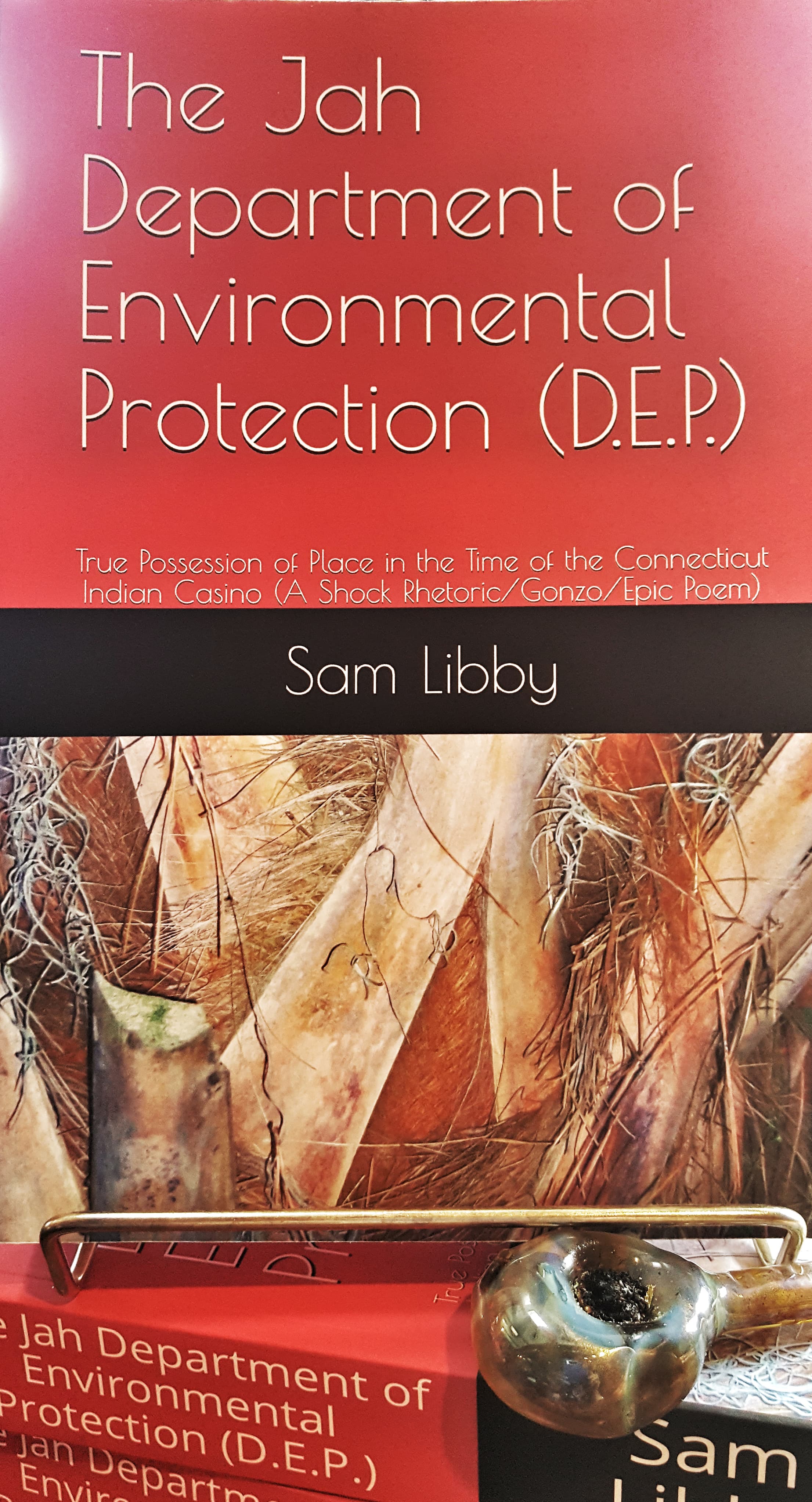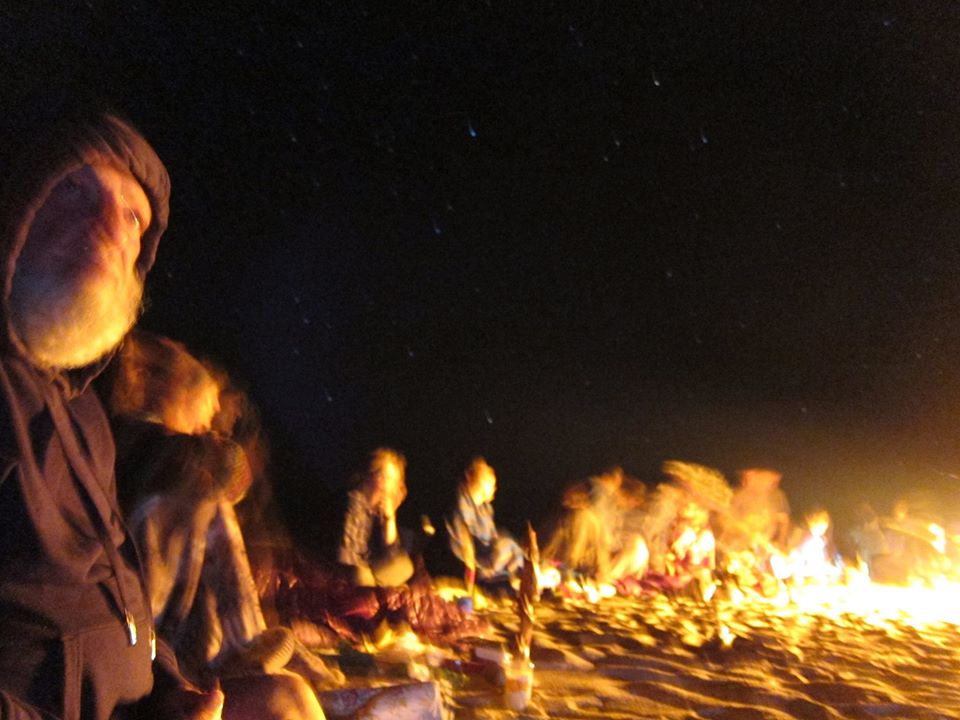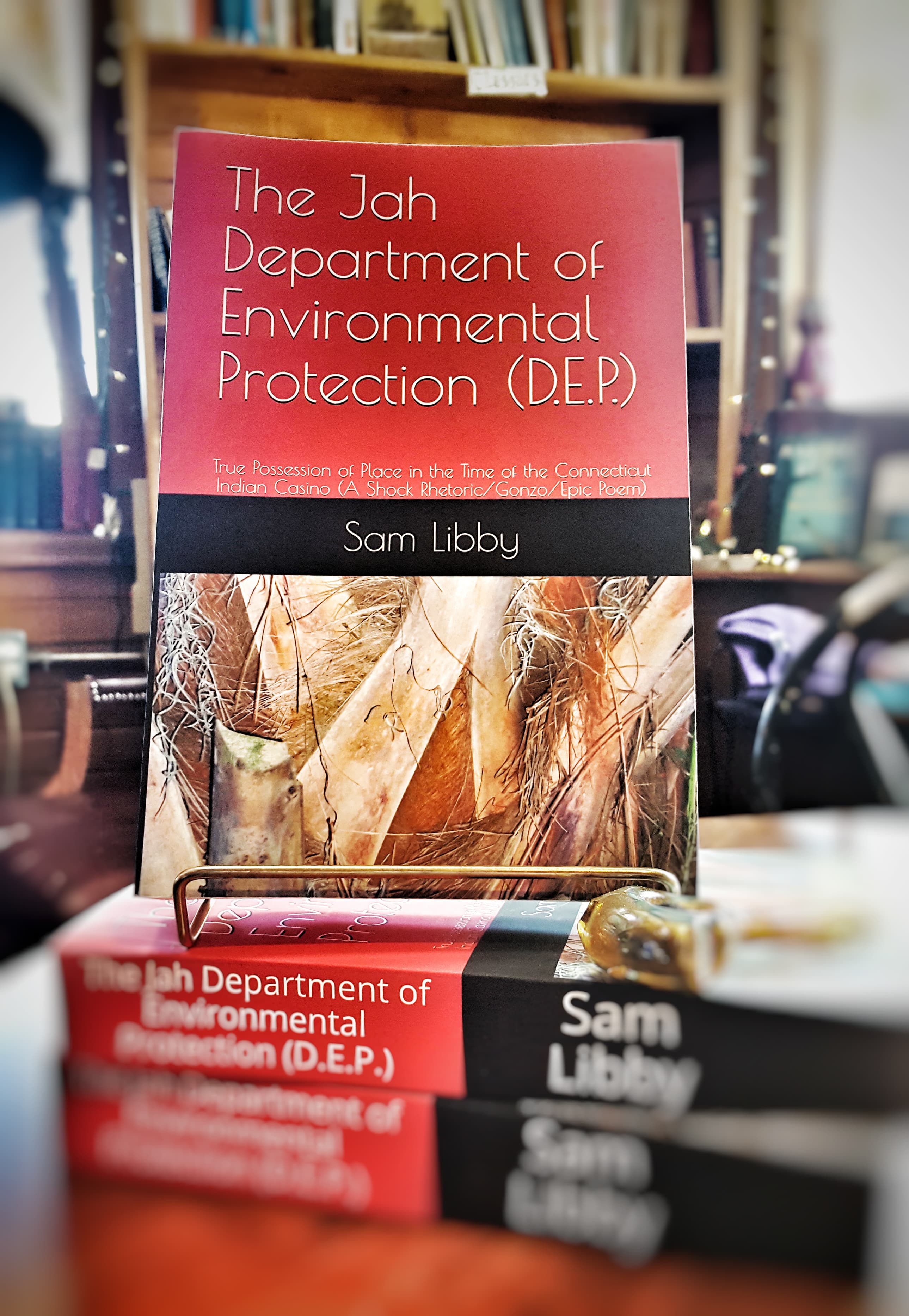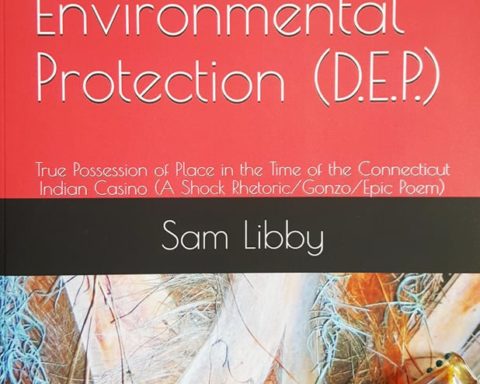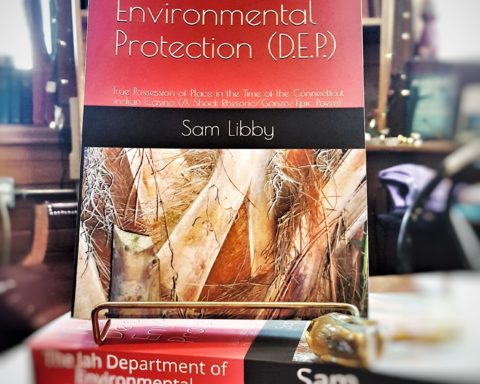Journalist/author Sam Libby returns to the land of his birth at a critical juncture in his own life and in the life of his small southern New England hometown as it becomes transformed by the towering glass and steel presence of Connecticut’s massive multi-million dollar casino industry. Here, Libby, through his first-person interactions with members of the area’s aboriginal Indian tribes, gives us a rare inside look of a proud, defiant people (RIP Moonface Bear) struggling to maintain their sense of place, their ownership of their indigenous land, their spiritual ties to their elders as the bulldozers rape the lush New England forests and thousands upon thousands of casino dollars seem to rain from the sky.
Through a parallel narrative, Libby also tells the story of his own journey, his never ending quest for greater understanding of the real spiritual truths, a journey marked by resistance to the selfish capitalist system destroying our lives and our earth, a journey of embracing the true aboriginal tribal spirit, of respecting nature and all its beauty and strength. Here, Libby is at his best. In intense, sometimes poetic, sometimes near ranting, Gonzo journalism style, Libby urges us to join the revolution, to “rise up out of the box” and fight back against “the man” and all of the evils He has brought to the world, to drain “The Great White Swamp” and take righteous ownership of our natural sense of place.
Choosing to live in a self-made refuge deep in the woods of the North American Wildlife Association, Libby doesn’t hide his affection for cultivating and using the finest “herb” – an affection that becomes an integral part of his journey and story and message. He embraces the beautiful nature around him, the wild animals and all of the symbolism he perceives in his almost shamanistic attunement with his surroundings. Nowhere is this more evident than in the captivating tale of the iconic Split Tree. There is also a sense of tragedy and betrayal as Libby learns the hard way that those he thought shared his devotion to nature and the indigenous tribal spirit were in fact like everyone else chasing the mighty dollar. He suffers great consequences as a result.
In the end, this talented author sews the two narratives together – the Indians, the Casinos, his own spiritual journey, his fierce refusal to become just another “car key carrying chimpanzee” – to share – and sometimes shout – to us the message that the we must all rise up, claim what is ours, protect what is ours, find our place in the beautiful world around us and protect it from the always encroaching selfish, capitalistic threats upon us. At a time when our world is quaking with protests about climate change, protests about economic injustice, protests about political and social injustice, Libby’s message of resistance and nurturing and protecting what truly matters is as timeless today as it was in Connecticut in 2003 when JAH was first published. For it is not the state or federally-sanctioned Departments of Environmental Protection that preside over our natural earth but it is the Jah – to many the Rastafarian God – D.E.P. that we must ultimately respect and nourish.
Colin Poitras – Pulitzer Winning Journalist
